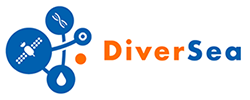Annual Meeting 2024 - DiverSea News


DIVERSEA 2024 ANNUAL MEETING HELD ON 8-10 OCTOBER IN ATHENS, GREECE
Earlier this month, DiverSea partners gathered in Athens, Greece, for the 2024 Annual Meeting. Over fifty participants, representing all 19 institutes of the DiverSea consortium as well as other collaborators and partners, participated. Together the team shared the work carried out in the first year of the project, and discussed the way forward.
We were warmly welcomed by the host institute, DiverSea partner National and Kapodistrian University of Athens (NKUA). All DiverSea work packages (WP) were presented, from creating, collecting, analyzing and predicting marine (biodiversity) data, to the communication, dissemination, coordination and ethic guidance. Presentations by postdoctoral and other early career researchers were a particular highlight.
The second and third meeting days focused on deep dives into the DiverSea case studies and advancements in biodiversity monitoring tools and technologies. Case study areas include the Norwegian and Swedish coast; the Atlantic Portuguese coast; the western Mediterranean and Adriatic; the Eastern Mediterranean, Aegean Sea and Strait of Dardanelles; and the Black Sea.
DiverSea partners are advancing a wide array of monitoring tools and technologies, including autonomous surface and underwater vehicles (ASV and AUV), hyperspectral satellite, buoys, and auto-sampling systems like the remote access sampler and photo ID sampling surveys. These and other tools will be used to monitor a wide range of Essential Ocean Variables (EOV) and Essential Biodiversity Variables (EBV). Parallel sessions at the Annual Meeting offered a chance to dig into advancements in approaches related to eDNA, eRNA, and DNAmarks, and robotic technologies.
The importance of DiverSea's work at the cutting edge of marine biodiversity monitoring was emphasized as external presentations helped put our work in broader context. A presentation by the DTO-BioFlow project discussed our contributions to the European Digital Twin Ocean (EU-DTO), and we appreciated presentations from our HORIZON European-funded sister projects MARCO-BOLO and OBAMA-NEXT.
DiverSea partners are now back to work after this successful meeting, refreshed and energized to carry out the work planned for our second year. As we dive back into our research, we are reminded of the clear need for projects like DiverSea and our partner projects to contribute to improving monitoring systems and tackling the immense challenges of biodiversity loss.
